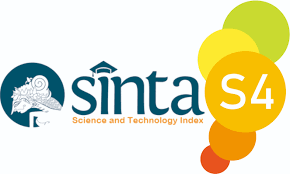Exploring the Competencies of Administrative Staff in the Era of Artificial Intelligence: A Qualitative Study in Higher Education
DOI:
https://doi.org/10.26740/joaep.v5n2.p116-131Keywords:
Administrative Staff, Artificial Intelligence, Digital Literacy, Data Literacy, Human–AI Collaboration, Higher Education Administration, Professional Development, Institutional AccountabilityAbstract
The rapid digitalization of administrative services in higher education has accelerated the adoption of artificial intelligence (AI), fundamentally reshaping the competencies required of administrative staff. While previous research has largely focused on AI’s implications for teaching and learning, relatively little is known about how non-academic administrative personnel adapt to AI-enabled environments. This qualitative study explores the competencies needed by administrative staff to sustain accuracy, responsiveness, and accountability in an increasingly automated institutional landscape. Guided by Creswell’s qualitative research design, data were collected through semi-structured interviews with administrative staff across multiple units in a higher education institution. Thematic analysis following Braun and Clarke’s reflexive approach generated four interrelated themes. Findings show that administrative roles have expanded beyond procedural tasks toward interpretive, supervisory, and evaluative functions, requiring staff to understand how AI systems operate, validate AI outputs, and intervene in cases requiring contextual judgment. Data literacy emerged as critical for ensuring the accuracy and integrity of institutional reporting, while human oversight was essential for maintaining ethical and contextually appropriate decision-making. Continuous learning—supported by structured training and organizational mechanisms—proved indispensable for sustaining these competencies. The study contributes to current debates on AI in higher education by highlighting the multidimensional and socio-technical nature of administrative competency in the AI era and offers practical recommendations for workforce development and institutional policy.
Downloads
References
Adamakis, M., & colleagues. (2025). Artificial intelligence in higher education: A state-of-the-art review. Information, 5(4), 180. https://doi.org/10.3390/encyclopedia5040180
Basilotta-Gómez-Pablos, V., De Benito, B., & García-Pérez, R. (2022). Teachers’ digital competencies in higher education: A systematic review. International Journal of Educational Technology in Higher Education, 19(8). https://doi.org/10.1186/s41239-021-00312-8
Braun, V., & Clarke, V. (2006). Using thematic analysis in psychology. Qualitative Research in Psychology, 3(2), 77–101. https://doi.org/10.1191/1478088706qp063oa
Braun, V., & Clarke, V. (2021). Conceptual and design thinking for thematic analysis. Qualitative Psychology, 8(1), 3–26. https://psycnet.apa.org/doi/10.1037/qup0000196
Coimbra Group. (2025). AI and digital competence through higher education — Position paper. Retrieved from https://www.coimbra-group.eu/wp-content/uploads/AI-and-Digital-Competence-through-Higher-Education-EMP-WG-Position-Paper-.pdf
Condon, P. B., & Pothier, W. B. (2025). Data literacy competencies in context: Employee perspectives on workplace needs. Journal of Business & Finance Librarianship. https://doi.org/10.1080/08963568.2025.2546209
Creswell, J. W. (2013). Qualitative inquiry and research design: Choosing among five approaches (3rd ed.). SAGE.
Creswell, J. W., & Poth, C. N. (2018). Qualitative inquiry and research design: Choosing among five approaches (4th ed.). SAGE.
Crompton, H., Besançon, M., & Fischer, N. (2023). Artificial intelligence in higher education: The state of the field. International Journal of Educational Technology in Higher Education, 20(22). https://doi.org/10.1186/s41239-023-00392-8
Deroncele-Acosta, A. (2025). Generative AI & transversal competencies in higher education. Horizons (MDPI). https://doi.org/10.3390/asi8030083
Faraasyatul' Alam, G., Purnawirawan, O., Herlambang, A. D., & Batita, M. S. R. (2025). National education policy: Implementation of Artificial Intelligence in higher education. Journal of Smart Education and Learning.
Helmiatin, A. (2024). Investigating the adoption of AI in higher education: Policy and practice analysis. Cogent Education, 11(1). https://doi.org/10.1080/2331186X.2024.2380175
Jin, Y., & colleagues. (2025). Generative AI in higher education: A global perspective of institutional adoption policies and guidelines. Computers & Education: Artificial Intelligence, 8, 100348. https://doi.org/10.1016/j.caeai.2024.100348
Kennedy, K., & Gupta, A. (2025). AI & Data Acumen Learning Outcomes Framework (white paper). Academy for Educational Studies.
https://academyforeducationalstudies.org/wp-content/uploads/2025/09/kennedy-gupta-final-1.pdf
Kennedy, K., & Gupta, A. (2025). AI & Data Acumen Learning Outcomes Framework (white paper). Academy for Educational Studies. Retrieved from https://academyforeducationalstudies.org/wp-content/uploads/2025/09/kennedy-gupta-final-1.pdf
Khairullah, S. A., et al. (2025). Implementing artificial intelligence in academic and administrative functions in higher education: A review. Frontiers in Education, 10. https://doi.org/10.3389/feduc.2025.1548104
Lincoln, Y. S., & Guba, E. G. (1985). Naturalistic inquiry. SAGE.
López-Núñez, J. A., Melian-González, S., & Suárez-Hernández, N. (2024). Digital competence evaluation in higher education: A systematic review. Education Sciences, 14(11), 1181. https://doi.org/10.3390/educsci14111181
Rioseco-Pais, M., Silva-Quiroz, J., Vargas-Vitoria, R. (2024). Digital Competences and Years of Access to Technologies Among Chilean University Students: An Analysis Based on the DIGCOMP Framework. Sustainability, 16(22), 9876. https://doi.org/10.3390/su16229876
Moreira, J. A., Nunes, C. S., & Casanova, D. (2023). Digital competence of higher education teachers at a distance learning university in Portugal. Computers, 12(9), 169. https://doi.org/10.3390/computers12090169
Myszak, J. M., & Filina-Dawidowicz, L. (2025). Leaders’ competencies and skills in the era of artificial intelligence: A scoping review. Applied Sciences, 15(18), 10271. https://doi.org/10.3390/app151810271
Nguyen, T., Elbanna, A. (2025). Understanding human–AI augmentation in the workplace: A literature review. Information Systems Frontiers. https://doi.org/10.1007/s10796-025-10591-5
Ocen, S. (2025). Artificial intelligence in higher education institutions: Opportunities and challenges. Frontiers in Education, 10, 1530247. https://doi.org/10.3389/feduc.2025.1530247
Sahar, R., & Munawaroh, M. (2025). Artificial intelligence in higher education: Bibliometric and content analysis for future research agenda. Discover Sustainability, 6, 401. https://doi.org/10.1007/s43621-025-01086-z
Santana, M., & Díaz-Fernández, M. (2023). Competencies for the artificial intelligence age: Visualisation of the state of the art and future perspectives. Review of Managerial Science, 17(6), 1971–2004. https://doi.org/10.1007/s11846-022-00613-w
Sánchez-Vera, F., et al. (2024). Subject-specialized chatbot in higher education: Empirical evaluation. Education Sciences, 15(1), 26. https://doi.org/10.3390/educsci15010026
Sposato, M. (2025). Artificial intelligence in educational leadership: Taxonomy and challenges. International Journal of Educational Technology in Higher Education, 22, 20. https://doi.org/10.1186/s41239-025-00517-1
Woo, H., et al. (2025). Human–AI collaboration: Students’ changing perceptions and implications for learning. Sustainability, 17(18), 8387. https://doi.org/10.3390/su17188387
Downloads
Published
How to Cite
Issue
Section
 Abstract views: 85
,
Abstract views: 85
, PDF Downloads: 89
PDF Downloads: 89










